My Place at the TableA Recipe for a Delicious Life in Paris
In this debut memoir, a James Beard Award–winning writer, whose childhood idea of fine dining was Howard Johnson’s, tells how he became one of Paris’s most influential food critics
Until Alec Lobrano landed a job in the glamorous Paris office of Women’s Wear Daily, his main experience of French cuisine was the occasional supermarket éclair. An interview with the owner of a renowned cheese shop for his first article nearly proves a disaster because he speaks no French. As he goes on to cover celebrities and couturiers and improves his mastery of the language, he gradually learns what it means to be truly French. He attends a cocktail party with Yves St. Laurent and has dinner with Giorgio Armani. Over a superb lunch, it’s his landlady who ultimately provides him with a lasting touchstone for how to judge food: “you must understand the intentions of the cook.” At the city’s brasseries and bistros, he discovers real French cooking. Through a series of vivid encounters with culinary figures from Paul Bocuse to Julia Child to Ruth Reichl, Lobrano hones his palate and finds his voice. Soon the timid boy from Connecticut is at the epicenter of the Parisian dining revolution and the restaurant critic of one of the largest newspapers in the France.
A mouthwatering testament to the healing power of food, My Place at the Tableis a moving coming-of-age story of how a gay man emerges from a wounding childhood, discovers himself, and finds love. Published here for the first time is Lobrano’s “little black book,” an insider’s guide to his thirty all-time-favorite Paris restaurants.
ALEC LOBRANO’s name is virtually synonymous with Paris food. He writes regularly on food and travel for the New York Times, the Wall Street Journal,Bon Appétit,Saveur,Food & Wine, Condé Nast Traveler, and many other publications. He writes a regular column on Paris restaurants for France Today, and he is also the French correspondent for Germany’s largest food magazine, Der Feinschmecker. He has appeared on CBS Morning News,TODAY,Chef’s Table, and Iron Chef. He lives in Paris.
Alexander Lobrano
The job of a food critic is to write about their experiences as honestly as they can. Does this same ability transfer when writing a memoir? Missteps, family history and childhood can all enter into the story telling. Food writer and former Paris correspondent (at the time arguably one of the most desirable jobs in food writing) for late and much lamented Gourmet Magazine, documents them all in his new book My Place at the Table.
Alec was kind enough to take some time to engage in a very enjoyable conversation about his book, a formative road trip to Guatemala and the joys of selling cheese.
_____________________________
BooksAboutFood.com(BAF): This seems like a natural book to write really.
Alexander Lobrano: Well, the book kind of dropped in my lap, like a ripe fruit. I mean, I think that I had been thinking I’ve done books about traveling in France and eating in Paris and Eating in France, this book though, which is much more personal and it’s more of a recounting my Odyssey since I’ve lived in France and how that Odyssey began and originated, the time seemed perfectly right to me because I think that we’re living a moment of great transition in terms of restaurant culture and gastronomy. And I think that my career, I was allowed to grow a very deep expertise, both in food and cookery, by working for people like Ruth Reichl at Gourmet Magazine, where the magazine paid for everything that I ate and so this, I had the luxury, the huge luxury of being able to be brutally honest as the occasion presented itself.
And also to really deepen my understanding of the difference between having an objective opinion and a subjective opinion. And I think it’s really important very early on for us to talk about that because what I see in the world today is a lot of people are saying, “Well why do we even need gastronomic or food critics anymore? I know what tastes good. I don’t really need somebody else to tell me,” I would say to that, if I wasn’t feeling well, I might have a vague idea as to what was the matter with me, but I’d still go to a doctor.
In other words, I really believe in expertise. And I think that a certain type of critical expertise, which is won and honed by the hard work of actually doing a lot of very, very assiduous learning about the subject and applying yourself to it over a very long period of time. But I was lucky enough to do, and that is really very much the story of my book because after having been in Les Echos, which is the French equivalent of the Wall Street Journal, the largest business, French language, French speaking, business newspaper in Europe, as their restaurant critic and wrote in French about French restaurants for them, if I was always seeking greater renown and greater accomplishment, it couldn’t possibly have really gone much further than that to have the French asking me to tell them whether or not their food was very, wasn’t it good?
BAF: What was your French expertise when you arrived in France? Language-wise?
Alexander Lobrano: Language-wise, I’m of the generation of people who learned his foreign language as sort of, it was a gilding the lily experience. It was that thing that thing that you did as an academic exercise with a possibility that maybe you would use it occasionally during what, two or three trips to Europe, it was never really taught as an essential tool. So my French was sort of fumbling tourist French. I’d had many years of it, but it had never been taught with great seriousness and arriving in Paris to start working in an office and interviewing people in French was a real shock because I realized very quickly that I was in very deeply over my head. And I talk about that.
There’s a story about my first interview in French with a famous cheesemonger in Paris, where I understood exactly three words, and he started off and was very nice, the man, Monsieur Androuet, the founder of one of the most famous cheese shops in France. And the three words, the first two words I understood was chèvre, goat and vache, cow. So I could sort that out thinking, “Okay, these are cow’s milk cheeses, these are goat milk cheeses.” Then he kept talking about brebis. And I couldn’t remember what that meant. And then finally I thought, ” brebis oh, sheep, and ewe, do they make millk?” I mean, that was how dim I was at that point in time.
He was tremendously patient with me. I had written my questions on little note cards. I said something about how his cheeses should be nailed to the walls of the Louvre and the photographer, I meant they were masterpieces, the photographers gave me a sideways glance as if to say, you should really be taken away in a straight jacket, Alec. So it was a very steep, uphill learning curve. I mean, I moved to Paris from London. I had been living in London before that, and I had done half of my university in London. So, but I’d always, I love London and still do, but I had always wanted to live in Paris. And so this improbable opportunity presented itself where I heard of a job writing about fashion for an American fashion publisher in Paris and applied for the job and most improbably got it. And that’s what I was doing when I first crossed the Channel and started in Paris. And it was a harrowing experience because I knew absolutely nothing about fashion whatsoever, nor frankly was I terribly interested. So that was the start of my terrible as it were.
BAF: So what were your expectations upon taking this job and arriving in Paris? Or for this whole adventure?
Alexander Lobrano: Well, my idea was it would get me across the Channel and take care of the official aspects of French, the paperwork and getting whatever papers I needed to stay in France and work. And I thought this is not the subject matter, in and of itself, is not terribly interesting to me, but it was kind of a little flying carpet as it were because it did deliver me to the place I wanted to be. And in the office, there were the occasional stories that were not fashion-related. There were food stories. There were travel stories. There were profiles of famous people. And I angled to get those stories whenever I possibly could, because I liked doing that writing. And I found the subject terribly interesting and slowly but surely, within that office, I became the person who was sort of the go-to for gastronomic subjects. And I worked there for almost three years and then finally I felt like I cannot possibly go to another fashion show. I think it would be the death of me.
So I thought, “Well, I think I’ll just leave and freelance.” I had been freelancing, I’d still been doing some freelancing work for people in the UK. And I’d been doing a little bit of freelance on the side and the weekends in Paris, mostly food and travel subjects. But that job I’m grateful to that company, and grateful to the late Mr. John Fairchild, who hired me, even though he so witheringly said to me, when he interviewed me, I was in his office and he said, I finally just blurted out I said, “Mr. Fairchild, I should really tell you something. I really know nothing about fashion.” And he said, “I could tell that by the way you were dressed when you walked into the room,” and he said, “Don’t worry about it, Alec. If it doesn’t work out, that’s quite easy, I’ll just fire you.” And I said, “Oh, all right, we’ve got this sorted out.”
BAF: Problem solved. So this was really a means to an end, really, I guess, this job..
Alexander Lobrano: It’s exactly what it was. Quite.
BAF: Well, what was your interest in food at the beginning of this?
Alexander Lobrano: Food for me, I mean, I’ve always been interested by food. I grew up in kind of a bipolar gastronomic background because my mother’s family was from Boston, where food was not deemed to be a particularly appropriate subject of conversation. If you talked about it at all, you’d say, “Oh, this is nice.” And then you continue. My father’s family is originally from New Orleans, and I don’t have to tell you that New Orleans is a profoundly, deeply gastronomic city. So it was really, I think the DNA from my father’s side of the family, rather than my mother’s, that provoked me and where it really bloomed though for me, I mean, I always loved to eat, and I was always curious about food, but when I was 12, I was so bookish and so shy. But my father decided to send me away for a two-month camping trip with a group of 12 boys. We left from a suburb of Philadelphia and drove all the way across America, Mexico to Guatemala, camping out every single night.
This is somebody who grew up in suburban Connecticut, I knew nothing about camping or any of this stuff. And the idea was is that this would toughen me up and-
BAF: Would toughen me up, that’s for sure…
Alexander Lobrano: discover a great desire to play baseball and throw frisbees and things like that. Instead, it drove me ever deeper into myself. And I kept hundreds of furtive little diaries and the main subject of my diaries was what I had eaten that day because leaving the east coast of America discovering the food ways, in the middle of the country, quite different from the East Coast and almost every region of America has its own foods because of the reflection of a different immigration. So I found that fascinating, you know what I mean? Suddenly in the middle of nowhere in Kansas, I was eating Czech food for the first time in my life, because we were in a town that had mostly been settled by Czech immigrants. Mexican food, I loved instantly, and there were times when we were just let off on our own, most of the time we ate communally, but there were times when we were left up to our own devices and were told to go to a restaurant.
So there I was going into restaurants by myself when I was 12 and sitting at lunch counters. And, I mean, people would look at me and say… As I say, I talk about in the book, I was somewhere in west Texas and the bored waitress in this flea-bitten cafe in the middle of nowhere, asked me where I was from and wanted to hear about New York City, and what’s it like…
Food became the lens through which I felt that food was a non-controversial prism through which I could enter into and engage the world. And also, I think, I would say that I speak five languages, English, French, Italian, some Czech and Spanish, but I also speak food and everyone speaks food and food is a language in which I’m fluent and all of us are fluent in food. And we don’t need, necessarily, words to communicate in that because it’s just something, when you share food with somebody else, it’s a very intimate and central and immediate experience that transcends language.
BAF: When did you feel that you may have turned the corner and things were starting to fall into place?
Alexander Lobrano: Well, I think for me, when I finally just decided to quit that job, I said, I’ll try for another six months, and if things don’t work out, I’ll go back to London or I’ll go back to New York. So I think I was optimistic, perhaps a tiny bit reckless, but very quickly, I got a job writing a column on Paris restaurants for Timeout when Timeout was doing a magazine in Paris. And from there onwards it started to… The process of building a reputation and becoming known and learning more and getting better and better assignments for better and better publications, leading up to meeting Ruth (Reichl), which was really… I had worked for Food and Wine and Bon Appetit and other people, but Gourmet was the magazine, in those days, that I really wanted to write for, and Ruth told through a mutual friend of a friend of my mother’s and Ruth, Ruth sent word, that the next time that I was in New York City, she wanted to meet me. She’d read something I’d written about Ferran Adria, the Spanish chef. So we had a memorable lunch, my mother, Ruth, and the common friend, Dorothy Greenberg.
Before we went to the lunch, I said to my mother, and we met on a park bench on the Upper East Side. And I said, “Before we go to lunch, this is a possibly very important professional meeting for me, please don’t embarrass me. Please don’t suddenly sort out some hideous childhood anecdote and whatever.” And I said, “And don’t,” my mother was a smoker, and I said, “Please don’t smoke because Ruth is reviewing this restaurant for the New York Times and loathes cigarettes, and it’s inappropriate to smoke around someone who’s a food critic.” So we went into the restaurant and we sat down and my mother immediately waved down a waiter and asked for an astray, and lit a cigarette and turned and said to Ruth, “Ever since Alec was in kindergarten, he’s been interested in working for a food magazine.” And I thought, “Oh my God, I can’t even believe this.”
But what it did was it created a bond between us because her mother was so difficult that when I called Ruth to thank her for lunch, and I said, “I’m sorry that my mother turned out to be so difficult.” And she was laughing so hard she could barely speak. And she said, “Alec, watching your,” she said, “Watching you being tortured was an exquisite pleasure to me,” and she said, “And I really respect you because you did not lose your temper. You tried as best you could to somehow, or another, surf your way through things.” So we had that bond because she had a complicated mother too. And very quickly after that, I started writing for her right after she started working for Gourmet. I immediately started writing for her. And then about six months into it, she asked me if I wanted to be the Paris correspondent, which was just the most wonderful job on the whole planet. And as people, since then, have often said, “A job that will never exist again.” And I’m afraid that’s really true.
BAF: Well, this touches, I guess, on another issue is that when you write about food and your experience, somewhat of a personal story, but this book is you’ve written other books, but was this book a little more difficult to write because you are getting very personal, you’re opening up a lot of doors and sharing a lot of experiences?
Alexander Lobrano: I was very lucky because my editor, Rux Martin, is a truly brilliant editor. And she was very usefully and relentlessly demanding. I mean, I would write certain things and she’d come back to me and say, I mean, sometimes she’d come back and say, “This is absolutely wonderful.” And then other times she’d come back and say, “You wrote around this story that we all actually want to hear, go back and write the story that you were too afraid to tell.” And that was a recurring theme. The idea really, truly of this book was that if you actually are going to tell your own coming of age story, it has to be really ruthlessly honest.
BAF: It sounds like she was really the right person to deal with and bring this out of you?
Alexander Lobrano: I think it was a gift and a luxury to have such an exigent editor. I mean, publishing, I worked in book publishing when I first finished university. I worked at Random House in New York. So I know book publishing really, really well. And it’s changed enormously to actually have a hands-on editor who does a real, what they used to call a pencil edit, going back and forth and back and forth and back and forth. It has become quite rare because the layers of editorial process that were in place when I first started working at Random House have all vanished and the process become very streamlined. And the massaging that’s necessary, a good editor massages, both a writer and the writer’s work, to bring out the best. That doesn’t happen as much anymore. So I was hugely lucky.
You know what you asked before? Yes. There were times when it was painful because they were things that I was avoiding because we all avoid certain aspects of our past because we’re uncomfortable with them, but Rex was right. I mean, once you put anything out in broad daylight, even your darkest secrets, once they’re out in broad daylight, they lose their power, and they lose their power because you’re not ashamed of them anymore. I think that certain things no longer, once you told the tale and it’s sitting there out in the world, there’s no reason to cringe about it anymore. It’s just what happened.
BAF: You had some very interesting advice from your landlord. Was this something that was a real aha moment for you?
Alexander Lobrano: I think at times when someone tells you something and they read the truth, the power of what it is that they’ve actually said to you, takes a while. It’s like a photograph that develops very slowly. That phrase, and then the phrase was, “If you are going to attempt to do gastronomical criticism, the first place to begin is, you have to understand the intention of the chef? What is the chef’s intention?” When she said that to me, I was bewildered because I thought, “Well, what does that mean?” And she said, “It could be, why do people cook? They cook for, because it’s a celebration or they cook to show love, or they cook to… Lots of different things, lots of reasons to cook.” And so, that became my mantra, really, that phrase and a very elegant phrase of that French woman who was absolutely passionate about food and who, she tutored me.
She really was one of my great tutors in French gastronomy, because I was her tenant. She was a very elegant woman, a countess, who was married to a retired British diplomat. And I lived on the ground floor and they lived over me. And they invited me one Sunday to Sunday lunch, which I was horrified by, but I didn’t see how I could say no. So I went and the cooking was exquisite. I mean, it was just, it was some of the best food I’ve ever eaten in my entire life. There were lessons in tastes and there were lessons in French table manners, and there were lessons and how to discuss food. And it was utterly fascinating to me. And it was another great gift that I was given without even realizing the value of it at the time.
BAF: Well, what was your baptism of fire? In the book, you mentioned some pretty accomplished names. Who would have been the person… Was there one person that once you’ve met with him and dealt with them, you realized, “Okay, I can do this. I’ve conquered this.”?
Alexander Lobrano: In terms of actual food, I mean, the owner of the Alsatian restaurant in the heart of Paris, which I used to go to a lot, his name was Mr. Schweitzer. And I used to go off into that restaurant. I knew nothing about French regional cooking when I first arrived in Paris. So Alsatian food was a complete discovery to me. And he was a very interesting man because he came from a very famous French military family, but he did not want to pursue, he’d gone to… He had been in the French army and I think he’d been, had very high rank, but eventually it was not for him. So he stopped and he told his father that he wanted to become a chef and the father was horrified, and said, “Well you’re not going to do that here.” So he moved to Paris and his intention as a chef was his delight, and his delight was really in offering pleasure to other people.
And in so far as I was concerned, there was something paternal about his reaction to me because he saw that I was very keen and very curious and really interested. So it was with pride that he introduced me to the cooking of Alsace, but he once said something… There was one night when I went in there by myself after work and he and the waitress were sitting, it was rather late, were sitting at the table having dinner themselves. And I said, “Oh sorry, I didn’t realize it was that late.” And they said, “No, sit down with us.” So I did, and I had dinner with them and it changed the sociological configuration of things to something much more intimate than had been before, because I always used to go there as a customer, not as a friend. Through that meal, we talked about our lives and we talked about the food and we talked about the restaurant.
And finally he said to me, “You know Alec, I think that you have always used food as a way of freeing yourself, but then you go back into your cage.” And again, it was one of these runic phrases, which I didn’t really understand what he meant. And he said, “You have a very keen palette. And I think you’re a very good writer. So why don’t you meld these two things together and make a life of it?” And that was somebody sort of holding me by the hand and showing me the obvious. He was wonderful. I mean, the people who taught me the most, were really chefs, men and women in the kitchens. The time I’ve spent in kitchens, actually with people who are cooking, that’s really where my deep, deep education came from. Because without really knowing and understanding how taste is created and where it comes from, you have no right to offer a critical evaluation.
But again, I go back to what I said before, about the difference between objective and subjective, a subjective reaction is an instinctual one, an objective reaction is the ability to actually understand what it is that you have in front of you. And from that point of view, what I learned, the people who taught me the most were, were chefs.
BAF: So what’s next for you, with everything going on and the book?
Alexander Lobrano: Well, what’s been wonderful for me actually, is that we have a house in a little village outside of Uzès, in the south of France and it was basically a pile of broken stones that we bought and decided we would very slowly, as we had the money, fix up. Because of COVID, after doing the lockdown in Paris, when the first lockdown was lifted, we fled and came down here because having been locked up in an apartment in the heart of Paris for four months was quite difficult. And I’ve been spending most of my time down here since then. And it’s sort of, it’s fascinating James, because it, we’d be like moving from New York City to Maine, or from Chicago to upper Michigan or something. I mean, when you leave the cities, you have one perception of a country, especially in France, because Paris dominates France so much.
But now having lived, primarily for the last year, really in France, the country itself is really profoundly different from Paris. I love Paris. I’ll always have Paris and we still have a place in Paris. But what happened as a result of COVID is that I started a whole new chapter in my French life. And I think of it as my second French life, because in the village, for example, in the morning, when the post office is only open for three hours and every time I go in, the lady behind the candidate looks up and says, “Bonjour. C’est notre américain,” “Good morning. It’s our American,”
Which I love because it denotes difference, but it’s also inclusive. And I find it so honest, I find it… And it’s her reflexive thing. She gives it no thought whatsoever. But to me it explains exactly where I am and everyone in the village is very aware of people, that people, yeah… When I’m out walking or something, and they’ll say, “You’re the one who… You’re the writer for, the American writer.” And I say, “Well I guess I am,” better that than the American felon, but so I’ve been fascinated by how different the food is when you’re actually living here permanently, when you’re not just coming on a holiday basis or a weekend basis, and really actually living in a rural, rural French life, how different the sociological interactions are.
It’s been absolutely fascinating to me. And so between that, and the fact that having been seated at tables for so many years, now what I’m most interested in doing is being the one who’s actually doing things. I mean, I like learning things. I’ve been working occasionally as a cheesemonger in the covered market in Nimes, when they need us, they need someone to stand in. I’ve become very good friends with one of the big cheesemongers there. And it’s fabulous because I have this vast, saying, “Look at me,” and they say, “Yeah, are you Swiss?” And I say, “No, no, no,” “Are you Belgian?” And I say, “No, not at all.” And they say, “Mais tu as un petit accent.” (But you have a little accent.)
And I say, “Yeah I do.” I said, “I’m from New England,” because they wouldn’t know where Connecticut was, but, and then if this like, slack-jawed reaction for, “What is an American doing behind the counter and what do you know about cheese?” And I said, “I can understand that this seems improbable to you ma’am, but let’s go forward and see what we can do here. What would you like today? And I can, maybe I can help you or advise you. At the very least, I know how to use knives,” going forward. And now it’s funny because last time that I did a week working there, people were bringing their friends over to say, “This is the American who knows as much about French cheese as a French person,” looking at me like… It’s sort of like you’re saying to a friend, “I just saw a zebra walking down Park Avenue.”
So I would like to write another book. I’d like to do an… I don’t feel as though people describe what I did, My Place at the Table, as a memoir. I don’t think of it as a memoir, as much as it is a coming of age story. And I love what I do. I’m hugely curious about France and food. As my lawyer brother in New York, waspishly said to me the other day, “I earn a lot more money than you do, Alec, but you get paid to do the things you like. You love to read, you love to travel, you love to eat and you like to meet new people. And you’re very curious, so you couldn’t have found a better career for yourself.” So I’m very far to port from stopping what I’d like to do.
I would like to continue to write another, there will be another book about my life in France, and eventually it might be interesting as well to try my hand at fiction at some point in the future. Like many people, I have an unfinished novel under the bed that dates back to when I was living in New York City and working at Random House. So many, many, many things in the future. And in the meantime, COVID has also made me a very good cook because since I wasn’t able to go to restaurants most of the time for a year and a half, I’ve been in the kitchen nonstop and I’ve emerged with a deeper appreciation and understanding of the culinary metier that I’ve ever had my entire life.
_____________________________
©Booksaboutfood.com 2021


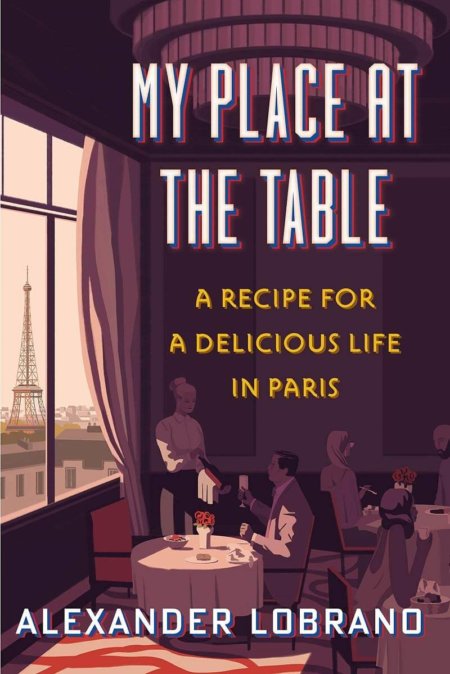


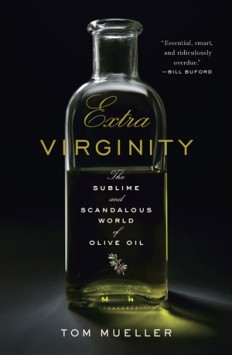
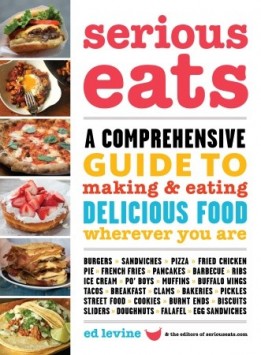
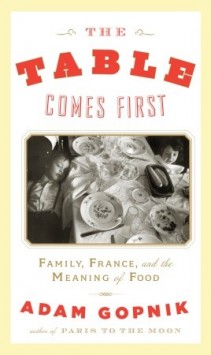
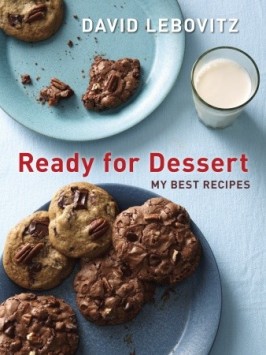
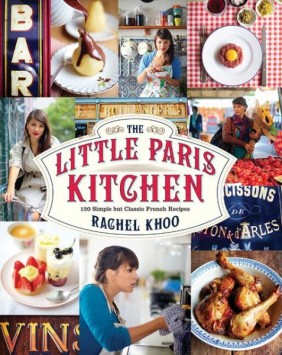
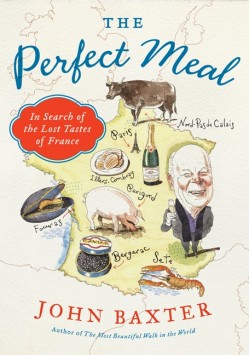
Leave a Reply